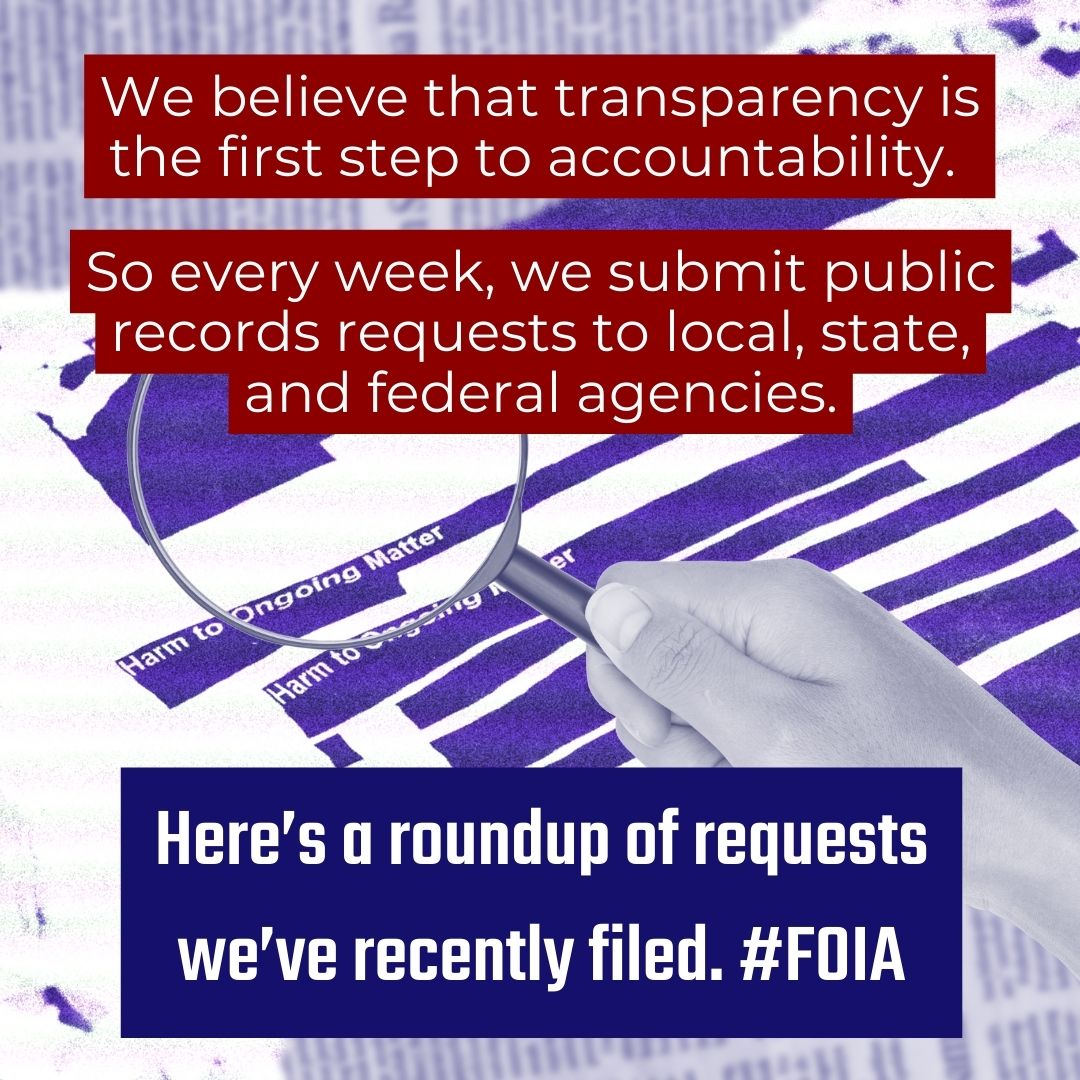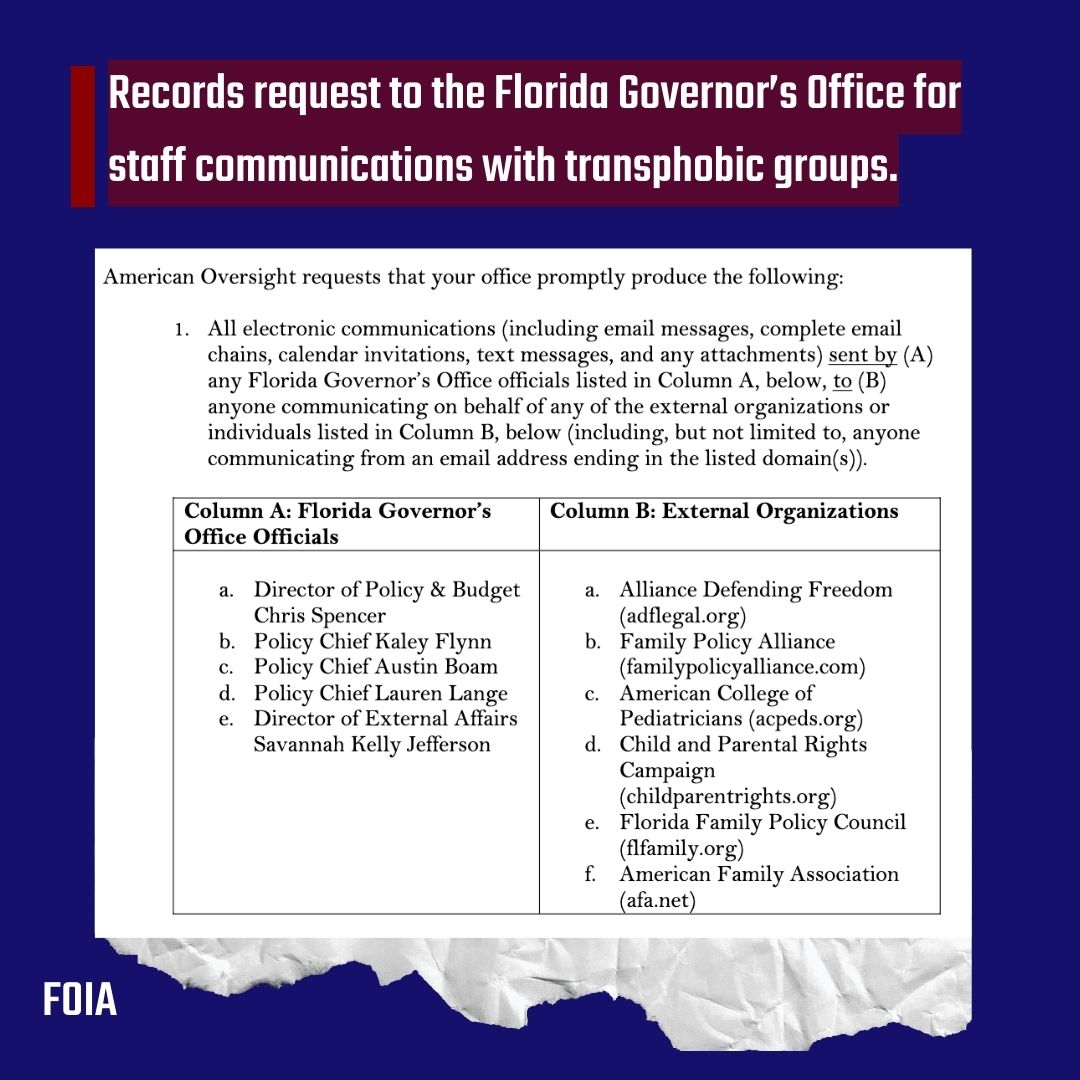
This month, American Oversight is celebrating our sixth anniversary of fighting to bring government records to light.
Here are six of our biggest wins for public accountability and transparency. #FoiaFriday
americanoversight.org/this-sunshine-…
Here are six of our biggest wins for public accountability and transparency. #FoiaFriday
americanoversight.org/this-sunshine-…

1. Reaffirming proper records retainment practices to combat election denial in Arizona and Wisconsin.
Our public records litigation in Arizona and Wisconsin reaffirmed the importance of document preservation and public accountability.
americanoversight.org/american-overs…
Our public records litigation in Arizona and Wisconsin reaffirmed the importance of document preservation and public accountability.
americanoversight.org/american-overs…

Our investigation revealed that leaders of the Wisconsin Assembly’s election review failed to properly maintain documents.
Multiple court decisions affirmed the public’s right to those records and the importance of preservation.
apnews.com/article/2022-m…
Multiple court decisions affirmed the public’s right to those records and the importance of preservation.
apnews.com/article/2022-m…
In Arizona, our lawsuit led to court rulings finding that records held by Cyber Ninjas — the biased firm that conducted the Arizona Senate’s sham election “audit” — were public records subject to release.
americanoversight.org/arizonas-sham-…
americanoversight.org/arizonas-sham-…
2. Public records policy changes at DOD and DHS.
In court filings in our lawsuit for top Trump admin. officials’ texts from around the Jan. 6 attack, the DOD and the Army revealed to us that certain officials’ mobile devices had been wiped when they left their positions.
In court filings in our lawsuit for top Trump admin. officials’ texts from around the Jan. 6 attack, the DOD and the Army revealed to us that certain officials’ mobile devices had been wiped when they left their positions.

We immediately called an for investigation. Two days later, the Pentagon announced a new policy regarding the preservation of text messages and other information stored on mobile devices.
americanoversight.org/defense-depart…
americanoversight.org/defense-depart…
3. Landmark public records lawsuit settlements.
In 2021, we reached a landmark settlement with the office of Georgia Secretary of State Brad Raffensperger regarding its handling of open records requests.
americanoversight.org/american-overs…
In 2021, we reached a landmark settlement with the office of Georgia Secretary of State Brad Raffensperger regarding its handling of open records requests.
americanoversight.org/american-overs…

We filed suit against the office in October 2020 after more than 30 of our requests went unanswered. Under the terms of the settlement, the secretary of state’s office agreed to several steps to streamline the process for requesting and obtaining public records.
This year, we reached an important settlement agreement in a lawsuit filed in 2020 against the Centers for Disease Control and Prevention over the agency’s illegal practice of rejecting valid FOIA requests.
americanoversight.org/public-records…
americanoversight.org/public-records…
4. We’ve successfully fought attempts to immediately dismiss our public records lawsuits in Texas, South Dakota and Virginia. 

Last year, South Dakota Gov. Kristi Noem attempted to dismiss our lawsuit for the release of Noem’s travel expense records and other records. In January, a South Dakota judge ruled that American Oversight’s lawsuit could proceed.
americanoversight.org/south-dakota-j…
americanoversight.org/south-dakota-j…
The office of Virginia Gov. Glenn Youngkin also sought to dismiss our public records lawsuit. In January, a Virginia judge rejected Youngkin’s efforts to block the lawsuit and granted our petition requiring the office to release the records.
americanoversight.org/judge-grants-a…
americanoversight.org/judge-grants-a…
Similarly, a Texas court denied an effort by Gov. Abbott and Attorney General Paxton to dismiss our lawsuit related to several public records requests, including for communications with the gun lobby and communications sent in the days around Jan. 6.
americanoversight.org/judge-rejects-…
americanoversight.org/judge-rejects-…
5. Using public documents to create detailed research guides. In our investigation of how the government responded to the Jan. 6 attack, we combed through thousands of pages of records from federal agencies and created a comprehensive timeline of that day.
americanoversight.org/timeline-jan6
americanoversight.org/timeline-jan6

Another valuable research guide based on records we uncovered is our timeline of the Trump administration’s family-separation policy.
The timeline lays bare the disorganization and lack of adequate planning regarding reuniting separated children with their families.
americanoversight.org/a-timeline-of-…
americanoversight.org/a-timeline-of-…
6. Holding the Trump administration accountable through the release of public records.
The throughlines between today’s threats to our democracy and the Trump administration’s abuses of power can be seen in numerous ways.
The throughlines between today’s threats to our democracy and the Trump administration’s abuses of power can be seen in numerous ways.

Our years of investigating the abuses of the administration resulted in the public learning more about Trump’s efforts to politicize the DOJ and the ways his personal business profited off presidency, top cabinet officials’ misuse of government resources, and much more. 

As American Oversight looks toward our next six years, we will continue our work to advance democracy, expose attacks on civil rights, and enforce the public’s right to government records.
Never miss an update by signing up for our weekly newsletter here:
americanoversight.org/mail-lists
Never miss an update by signing up for our weekly newsletter here:
americanoversight.org/mail-lists
• • •
Missing some Tweet in this thread? You can try to
force a refresh









